Environment
COMPOST TOILETS
We’re Turning Your Poop into Gold!
At Boom, we’re transforming the way we think about sustainability - starting with our compost toilets. Since their introduction in 2006, these innovative toilets have set a new standard for large-scale events, revolutionizing our approach to sanitation and turning waste into a valuable resource.
Over the years, the science and methodology behind our compost toilets have continuously evolved. This progress is thanks to the collaboration of dedicated organizations, expert individuals, and our own site-specific experimentation. Each festival edition brings new insights, refining our techniques and enhancing the efficiency of our composting process.
Compost toilets at Boom have proven that it's not only possible to manage human waste safely and responsibly, but also to give back to nature in a meaningful way. By converting waste into nutrient-rich soil, we’re closing the loop and contributing to the regeneration of the Earth.
FAQ
- Compost toilets are dry, free of putrid smells known to emanate from the conventional toilet. So don’t bother looking for the flush because you won’t find it.
- The composting tank beneath the toilet seat has been installed to store all your poo and pee. It is prepared with nutrients like carbon to assist the composting process and to neutralise the odours.
- Once your ‘executive meeting’ with the compost toilet is complete (ie: you have finished your business) - use the tetra pak recycled toilet paper, throw it inside the toilet and close the lid immediately to keep the heat and flies out.
- Human beings produce two kinds of outputs: liquid and solid. They are kept in a compost tank where temperatures reach up to 50 degress celsius. Time and high temperature will lead most pathogens to eventually die.
- Once the pathogens have been killed off, the resulting material is sent to a lab to be analysed and if the results are confirmed positive, it is utilised to create soil for the land.
Compost toilets are living organisms - it's paramount that we follow the guidelines necessary to their survival and proper functioning:
-
Plastics are not biodegradable. Please do not throw female hygiene products (sanitary towels and tampons) and nappies or diapers into the toilet.
-
Cigarette butts cannot be broken down by the composting process, use the portable ashtrays instead.
-
Do not pour the contents of the caravan’s chemical toilet into the compost toilet.
-
Because your poo can become gold and can create organic fertiliser to feed the flowers, the trees and edible gardens.
-
We save water. The average flush uses between 6 and 15 litres of potable water while 663 million people (source: wateraid) are living without clean water.
-
If we consider that going to the toilet on a average of six times per day wastes up to 60L p/day, during the eight days of Boom Festival, the use of compost toilets by 40,000 Boomers help save over 19 millions of liters of water.
-
Compost toilets are chemical free, which means we avoid overloading the public water treatment plant with chemicals.
-
We create compost soil. By collecting the manure of 30,000 to 40,000 Boomers, we help nourish the earth by creating an organic compost that is combined with the soil, thus making it more fertile.
-
Over the years we've developped a model of compost toilets that has become practically odorless, and above all, comfortable to all users.



